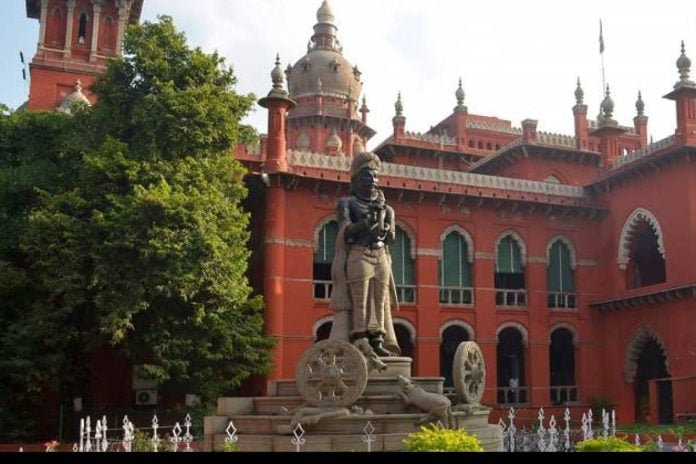New Delhi: The Madras High Court has asked the central government to explain why it isn’t enacting a law to prohibit candidates with criminal background contesting elections to Parliament as well as to state legislatures as suggested by the Constitution Bench of the Supreme Court in 2018 in the case of Public Interest Foundation and others vs Union of India.
A division bench of Justices N. Kirubakaran and V.M. Velumani made these observations while hearing a plea seeking directions to call for the records relating to the detention order passed by the district magistrate under the Puducherry Prevention of Anti-Social Activities Act.
The petition filed by the wife of the detenu also prayed for direction to the respondent to produce her husband, confined in Central Prison in Kalapet, Puducherry, before the Court and set him free.
During the hearing court noted that Out of the 19 cases against the detenu, one case was registered for the Offence under Section 302 of Indian Penal Code, one case was registered for the Offence under Section 307 of Indian Penal Code, three cases for the offence of dacoity and one case registered under NDPS Act and so on. Taking note of it, Court questioned the respondent as to why investigation has not been properly done and charge sheets are not filed even for the case pending from the year 2009 and directed, by Order dated 29.07.2020, to file a report regarding the
stages of investigation in the cases registered against the detenu as well as the details of pending trial cases.
“It is evident from media reports that criminal elements in Puducherry have close connection and support of political parties. Political parties are having criminals as their members and also office bearers. It is brought to the notice of this Court that many cases are relating to inter-gang rivalries and country made bombs are used to murder the opposite gang members,” said the Court.
The bench has asked the centre about the number of persons with criminal background who are part of political parties as top office bearers and district secretaries along with the details of the criminal cases registered against them.
The court observed that persons with criminal background should not become policy makers. The Association for Democratic Reforms (ADR) released a report “Lok Sabha Elections 2019 – Analysis of Background, Financial, Education, Gender and other details of the winners” which revealed that 43 percent elected MPs have declared their criminal cases out of which 29 percent have serious criminal cases pending against them.
“Therefore, the Central government needs to come out with a comprehensive legislation to prohibit persons with criminal background from contesting elections to Parliament, State Legislatures and local bodies as observed by the Constitution Bench of Hon’ble Supreme Court in Public Interest Foundation and others vs. Union of India and another on 25th September 2018,” the court said.
According to the court, criminals being accommodated in political parties and given tickets to contest elections to be elected as MLAs, MPs, and made ministers send a wrong message to the people, as the leaders should have a vision for decriminalization of politics.
The bench observed that it has been reported that persons with criminal background are becoming policy makers in many parts of the country and the same needs to be prevented and the system has to be cleansed. This would be possible, only if the top leaders of our political parties are firm in not admitting the criminals in their political parties.
Read Also: Kerala HC rejects plea for guidelines to regulate print and electronic media
Indian Democracy should not be tainted by criminals. Further, it is seen that some of the criminal elements are floating political parties on their own with the support of their religion or communities and the same is required to be prohibited, said the Court.
The Court has posed various queries from the Centre and list the matter for further hearing.
-India Legal Bureau


